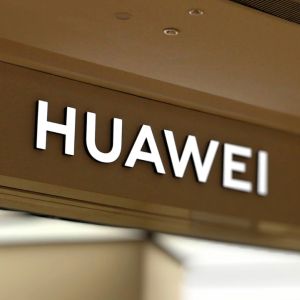
Huawei’s chipmaking remains a generation behind US rivals, but the company is deploying creative workarounds to close the gap, according to remarks by CEO Ren Zhengfei published this week by local media. Despite stringent American export curbs imposed since 2019, Huawei is leaning on techniques such as cluster computing and innovative multi-element “compound” chips to boost performance, Zhengfei told China’s official Communist Party mouthpiece. Huawei banks on innovation to narrow the gap Zhengfei emphasized that Huawei dedicates roughly 180 billion yuan (about US$25 billion) each year to R&D, splitting that investment between theoretical exploration and product development. “Without a solid theoretical foundation, breakthroughs are impossible, and without breakthroughs, we cannot hope to narrow the lead established by US firms,” he said, noting that approximately one-third of the annual research budget underpins fundamental science, with the remaining two-thirds channeled into practical engineering and design. At the heart of Huawei’s strategy lies a trio of complementary approaches . First, the firm pairs advanced mathematics with conventional physics to simulate and optimize chip behaviour, sidestepping some of the constraints of Moore’s Law, the long-held principle that transistor counts double roughly every two years. Second, by blending varied semiconductor materials into compound chips, Huawei seeks to eke out new performance gains beyond what single-material devices can achieve. Finally, the company is harnessing large-scale cluster computing, linking hundreds of individual processors into a unified system, to compensate for any shortfall in the raw speed of a single chip. “Through weaving mathematics into physical design and augmenting Moore’s Law with non-Moore’s Law techniques, then layering on cluster computing, we can attain results suitable for real-world applications.” Zhengfei. He added that software has not proven to be a bottleneck for Huawei; rather, the limitations lie in the hardware itself. Zhengfei’s frank admission of his firm’s lag comes as senior US and Chinese trade negotiators continue discussions in London, where America’s tech restrictions on China are high on the agenda. The company wants to prove a point Since 2019, Washington has barred Chinese firms, including Huawei, from obtaining the most advanced processors and the high-precision equipment needed to manufacture them, in a bid to curb Beijing’s technological and military ambitions. Until now, neither Zhengfei nor any other Huawei executive has publicly detailed the company’s chipmaking efforts. His comments mark the first official peek at how the Chinese firm is responding to these challenges. “The United States has perhaps overstated Huawei’s prowess,” Zhengfei acknowledged. “We are not as extraordinary as some claim, we must work diligently to prove ourselves.” Zhengfei In parallel with its defensive measures, Huawei has been actively promoting its Ascend family of artificial-intelligence chips, which vie with products from Nvidia , the undisputed leader in AI processors. In April, Huawei unveiled its “AI CloudMatrix 384” system, which stitches together 384 Ascend 910C chips in a single cluster designed for AI model training. Industry analysts have pointed out that on certain benchmarks, this configuration can even outpace Nvidia’s GB200 NVL72 setup, though the American firm still dominates many other metrics. Nevertheless, the US Commerce Department recently ruled that deploying Ascend chips would breach existing export controls, underscoring the fraught intersection of global competition and national security. Nvidia, for its part, has been unable to sell its most cutting-edge GPUs to Chinese buyers, a situation that has enabled Huawei to regain some market share domestically, even as its chips remain technically a step behind. Looking ahead, Zhengfei expressed optimism. He highlighted the promise of compound chips, devices constructed from multiple semiconductor materials, as a potential game-changer. And he reiterated his confidence that, through persistent investment in both theory and engineering, Huawei will continue shrinking the performance gap with its US counterparts. “Worry over Huawei’s chip supply is unnecessary,” he concluded, urging stakeholders to recognize the firm’s resilience and ingenuity under pressure. Cryptopolitan Academy: Want to grow your money in 2025? Learn how to do it with DeFi in our upcoming webclass. Save Your Spot
